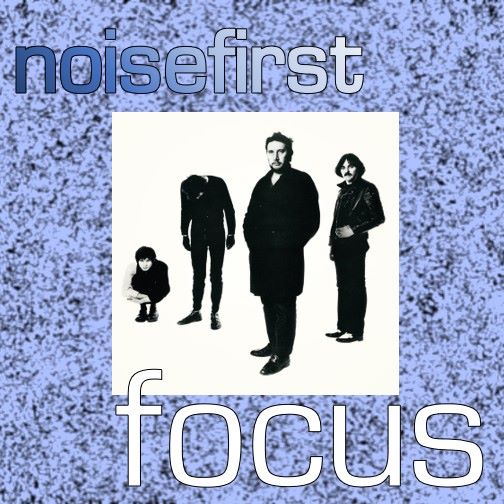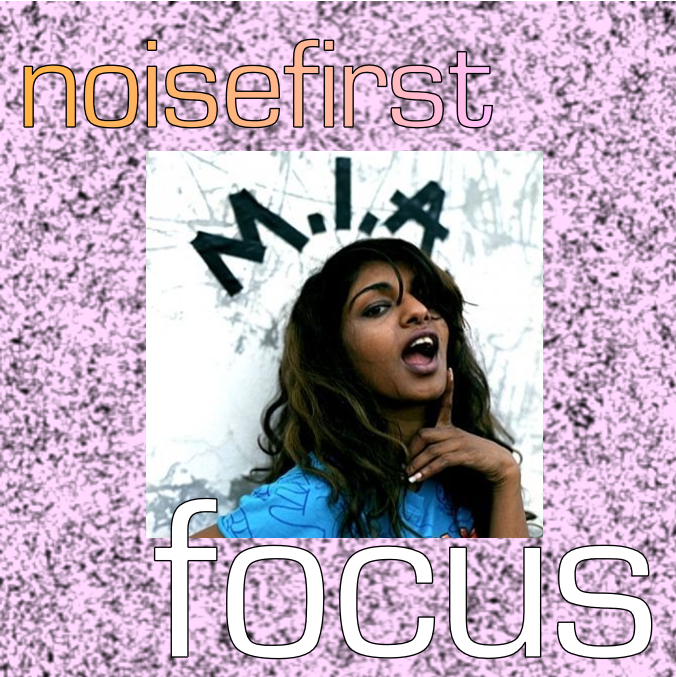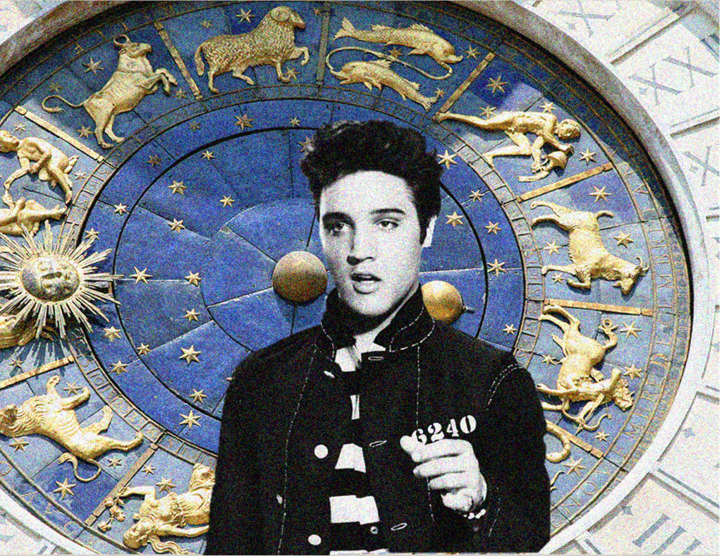Last Updated on 25/09/2022

Disclaimer: readers may find some events discussed in this article upsetting.
Happy Pride everyone! Today marks the 51st anniversary of the Stonewall Riots that sparked gay liberation movements across the Western hemisphere and set in motion the fight for greater LGBTQ+ visibility and equality. What happened at Stonewall Inn on 28th June will never be forgotten and, in memory of the riots, Pride parades now paint the town red, orange, yellow, green, blue and violet in order to celebrate being queer and to visibly counter social and constitutional bigotry.
Unfortunately, thanks to illiberal and injurious government rule, there are still many countries whose LGBTQ+ communities do not have the institutional infrastructure to organise Pride events as large and safe as the ones in New York and London. In fact, there are as many as 72 countries where homosexuality is still criminalised. This in turn makes the efforts of pro-LGBTQ+ musicians from these countries all the more brave and their cause all the more noble. It is not uncommon to see entertainers on the front line of the LGBTQ+ cause. Marsha P. Johnson, who was a key figure of the Stonewall Riots, was also an artist. As visibility is key to reaching a turning point where queer musicians from countries where it is still illegal to be queer are judged on merit and not on sexuality, this article attempts to do what it can to lend its voice to spreading these artists’ music. Greater visibility, after all, is key to greater understanding.
The Americas:
Although most of the Americas does not directly persecute homosexuality, Caribbean countries such as Jamaica still have sodomy laws in place. Indeed, a lack of interest to protect the LGBTQ+ community has led to Time Magazine once labelling Jamaica as “the most homophobic place on Earth”. The anti-queer directive is incredibly strong and in the all too recent past has dominated Jamaica’s airwaves. Buju Banton, Sizzla and Beenie Man, for example, have all been celebrated for their brand of homophobic ‘murder music’, with Banton raking in more No.1 hits in Jamaica than Bob Marley himself. In turn, LGBTQ+ Jamaicans face the very real risk of being assaulted or even killed. The murder of Brian Williamson, a gay activist, was celebrated by local onlookers singing the words to Banton’s “Boom Bye-Bye”. A group of Kingston youths who experience this onslaught on a daily basis, but are nonetheless still unapologetically queer, are the ‘Gully Queens’. Rejected by their own families, they have been thrown out of their homes and are forced to live their lives in the city’s ducts. Their existence, or lack thereof, was documented by VICE in 2014. It’s worth watching.
So inspirational are the gully queens that Jamaica’s societal consensus is slowly beginning to shift in favour of their strife. The first to come out artistically in support of the queens and the queer Jamaican community at large was dancehall rapper Mista Majah P whose debut album Tolerance came out in 2011. He has a powerful, booming voice and tunes into a similar tempo and rhythm used by the likes of Banton, despite the message he relays being entirely different. It wasn’t until the following year that a Jamaican artist would come out themselves. This would be Diana King in 2012. With popular hits such as “Shy Guy” and hard vocals on Biggie Smalls’ “Respect”, her discography is not one to belittle. Nowadays, King is relaying her wisdom back to society and heads ThinkLikeAGirl, a label promoting female and non binary artists. Today, Demaro – Jamaica’s first openly gay dancehall artist – also has the intent of weaponising his music. His debut single “Mi Readi” was only released last year but if the rest of the album (which is expected to come out at some point this year) is as uplifting and inspirational as the single itself, we’re in for a killer release. See the gully queens in action in Ray BLK’s music video for “Chill Out”, with what is an incredibly moving piece of cinematography.
It is no secret that, considering the degree of hypermasculinity that still exists today in Jamaica, there is a long way to go in the fight for equal rights. In fact, the toxicity of Jamaica’s patriarchal society also resonates with several popular female Jamaican artists, such as D’Angel, Jada Kingdom, Ishawna and Shenseea, who have all been vocal at Jamaica’s first Pride events and are allies of the LGBTQ+ movement. Ishawna’s release of the single “Equal Rights” is a cultural remark on men’s enjoyment of oral sex, contrasted with the hesitancy to go down on women for fear of submitting themselves to the opposite sex. This is where the derogatory term ‘bowcat’ originates. According to The Face, Ishawna’s sales have plummeted since the release of the song.
International superstars need to do more to use their platform to speak out. Barbados is another country where sodomy laws still stand and so, whilst we commend Rihanna for speaking out for the LGBTQ+ community, people of her stature perhaps need to be more vocal in the face of the massive inequalities that still exist in the Carribean.
Africa:
Homosexuality is criminalised in roughly three fifths of Africa and, according to Amnesty International, some of these countries are still tightening laws and increasing punishment. One such country where the LGBTQ+ community has been severely marginalised is Uganda, as evidenced by the raids and arrests that took place during a Ugandan Pride event in 2016. Petter Wallenberg, producer and founder of Rainbow Riots, witnessed the terrible persecution of Pride attendees first hand whilst in Uganda to scout queer artists himself. Producing music under these conditions, the artists on Rainbow Riots’ album release need to be applauded for their bravery. Shivan Pavin is a proud lesbian singer and performer who, since her work with Wallenberg, has gone onto release her own album, Back Off (2017). Shivan’s confident vocals compliment the album’s upbeat instrumentals brilliantly. “Set Me Free” and “We Need Love” on the Rainbow Riots release also features Kowa Tigs and Brayo Bryans respectively, other queer artists committed to fighting for acceptance in Ugandan society.
Of course, there are other LGBTQ+ artists spanning the African continent that are not affiliated with the Rainbow Riots charity. For example, it has been quite some time since I have come across an artist as original and exciting as Shishani who, despite being based in the Netherlands, is ethnically Namibian-Belgian. Her music is deeply inspired by traditional Namibian sounds, but dubbed with a European, metropolitan twist, leading to several outlets comparing her with Tracy Chapman and Nneka. Nonetheless, comparisons are largely wasted, as Shishani’s discography is truly unprecedented. As a matter of fact, a mashup of different instruments from different cultures compliments Shishani’s desire to bring her two worlds closer together. Of course, being openly lesbian herself, she acknowledges that to do this the Namibian government needs to first safeguard its queer community with equal human rights. The track “Minority” calls for such equality and is a beautiful song, both lyrically and melodically.
Originally hailing from Sudan but now living in Minneapolis after escaping her native country’s civil instability, Dua Saleh is another artistic talent pressing for greater government support of the African LGBTQ+ community. They are one of America’s star slam poets and, since their debut EP Nur, have been using music as a form of escapism. Their most recent EP, ROSETTA, manages to walk the line between being incredibly tender and soulful and at other times fantastical and futuristic. For the track “smut”, Dua Saleh sings excerpts in Arabic, queering the language by playing around with its pronouns and genders. They are on course for big things!

Attention should finally be brought to the straight allies who carry the LGBTQ+ flag for Africa. It is commonly argued that, with Fela Kuti’s death in 1997, Nigeria’s music scene overnight became apolitical. However, the release of Falz’ “This is Nigeria” in 2018, a cover of Childish Gambino’s thought-provoking smash hit, has meant that the lawyer-turned-musician has since resurrected Kuti’s work, forcing a judging lens on Nigeria’s corrupt politics, places of worship, policing and social injustice. His recent release of the song “hypocrite” more specifically judges the duplicitous attitudes of many Nigerians towards their queer community. Other famous Nigerian artists who have stood with the LGBTQ+ community are M.I. Abaga and Charly Boy. FOKN Bois and Amaarae are spreading a similar message in Ghana, using music videos to normalise queer sexual expressions. The same can be said for Kenyan artist Art Attack, whose music video to his cover of “Same Love” represents the nation’s first attempt at visualising LGBTQ+ relationships. Although the Kenyan government has demanded Google to pull down the video, it remains online and has racked up 346,000 views since its release.
Middle East and Asia:
The Middle East’s LGBTQ+ record is abhorrent with only a few countries not outlawing same-sex relations. Punishments are notoriously extreme and, in some cases, even appearing queer is grounds for the death penalty. Take Iran, for example. Between 1979 and 2008, it was reported by WikiLeaks that around 4,000 to 6,000 local gay men and women had been executed on the grounds of their sexuality. Indeed, only last year was the Kurdish singer Mohsen Lorestani charged for reportedly having online flirtatious conversations with another man. The charge was labelled by the court in Tehran as “corruption on earth”, which according to various sources led to Lorestani being executed on 6th December. His music has received millions of listens on Youtube and it is clear by reading comment sections that this tragedy has left many people heartbroken. Hopefully his beautiful voice and alluring stage presence will live on in the memories of the Kurdish communities he charmed.
Two queer artists who are helping to change Middle Eastern politics are Hamed Sinno of Mashrou’ Leila and Wafia. It would not be an understatement to liken Sinno to a modern-day Freddie Mercury both in terms of stage performance and musical genius and to refer to Mashrou’ Leila as the new face of a generation. Formed whilst its four members were at the American University of Beirut, their electro-indie-rock sound has rocketed them to stardom. They are invaluable to the LGBTQ+ movement in the Arab world as, whilst I’m sure that many in the region do indeed support a progressive stance on equal human rights, the band have gone one step further, showing a knack for actively opposing the Middle Eastern governments steadfast on squashing freedom of expression. Songs like “Shim El Yasmine” narrate tales of forbidden gay love and are invaluable in the fight against extreme injustice. Drawing in crowds of tens of thousands of people to their concerts, such a catalogue of Mashrou’ Leila songs undermine homophobic legislators by prompting audiences to fly their LGBTQ+ flags with pride. This is exactly what happened in Egypt, for example. Wafia, meanwhile, is a proud Iraqi-Syrian pansexual, with a successful, poppy discography that forces you to get jiggy. However, don’t think that her playful, charming sound is void of meaning. The musician uses her synthy beats to disguise topics that her audience would often find hard to digest, such as the Syrian refugee crisis. Turning uplifting qualities of pop on their head, Wafia hopes that, by being more accessible, her verses pack greater punch. “Only Love” deals with the complexities of coming out and, given Wafia’s Middle Eastern background, compliments this new liberal dynamic to Middle Eastern music.
East Asia is also experiencing a similar rise in queer expression via music. For example, although in March this year the Singapore legal system rejected appeals to overturn colonial sodomy laws, the resiliant strength of their LGBTQ+ community is still evident. Tays is a Singaporean artist who emotively captures the anxiety of coming out and the struggles that he endured after losing his record deal for being gay. Feeling dejected, he cites how it was the resilience of the LGBTQ+ community that pushed him to keep going and finally release “Open Up Babe”, a more recent single with a playful beat. Likewise, Leon Markcus is refreshingly open about his queerness, with his own artistry carrying a youthful glow.
Things are kicking off over the border in Malaysia too, where it also illegal to be gay. Malaysian band Shh… Diam!, whose name literally means ‘Shut Up!’, are currently on the front line for the LGBTQ+ cause, serving up some much-needed attitude. Although songs such as “I woke up gay” and “Lonely lesbian” tackle serious issues and are therefore naturally political, the band suggests that their main focus is to have a laugh, making for some electric live performances. It’s great to see Faris Saad, who is their openly trans frontman, toy with his audience in a country known for being one of the very worst for freedom of thought. Albeit taking a different direction in the music industry, Alextbh is another queer Malaysian artist having an impact on society. Influenced by James Blake (not to be confused with James Blunt, thank goodness) and Majid Jordan, listening to Alex’s emotive R&B releases, it is clear he is unapologetically proud of his sexuality. He has opened for the likes of Khalid in Kuala Lumpur and uses these opportunities to parade the LGBTQ+ flag in front of huge audiences. Good.
Oceania:
Finally we come to Oceania, where six countries are still yet to legalise homosexuality. In Papua New Guinea, although people tend not to be prosecuted, same-sex relationships are still constitutionally illegal and can fetch a fourteen year prison sentence. Consequently, a lack of political initiative pampers toxic masculinity on the Island and fuels hate crime, thus making being an LGBTQ+ Papua New Guinean dangerous even today. Supposedly only in the small coastal town of Hanuabada does the local queer community really feel safe.
In this case, it is fundamental to explore the cultural imprint that Moses Tau left on Papua New Guinean politics and Oceanian thinking before the openly gay musician sadly passed away in 2018. Despite local church figures having grievances, the popularity of “Aito Pakapaka”, his first single, quickly transformed him into a household name. It would be the first of many releases that would showcase Moses’ unique, feminine falsetto singing style, sampled over a traditional Pacific beat – a joy for anyone to listen to. What’s more, according to Christine Stewart, author of Name, Shame and Blame: Criminalising Consensual Sex in Papua New Guinea, Moses’ decision to wear traditional island-girl dress in the accompanying music video to his first hit also marked “the first public display of cross-dressing” in Papua New Guinea. Most would definitely struggle to work that flower garland and sarong combo as well as him. It was a visual protest to compliment his concomitant thought that the queer community cannot be kept in a cage. Accompanying his discography, Moses was also a very charitable man. He would reportedly travel around Papua New Guinean villages, spreading awareness of LGBTQ+ rights and information concerning HIV, whilst simultaneously circulating condoms. Such an important community figure, it is no wonder that when he passed away it sent tremors across the Pacific Islands.
More recently, another queer artist is breaking new paths for Oceania’s LGBTQ+ community, namely Miss Blanks. Australian born, but partly of Samoan ethnicity, the hiphop artist has exploded onto the scene and is currently asking questions concerning immoral government legislation and a patriarchal music industry. Her verses are quick, hard, loud, proud and empowering.
Writing from the UK, a country that is lucky enough to be at the forefront of the LGBTQ+ civil rights movement (although we ourselves have a long way to go!), let us not forget about the rest of the world. Take a minute to listen and engage with these artists’ incredible music too. Their contributions truly matter and could do with your support! Bounce to their reggae, bop to their hiphop, sway to their ballads. Besides, if we’re allowing Coldplay to produce an eighth album, you lot have got to be gagging for something new.


